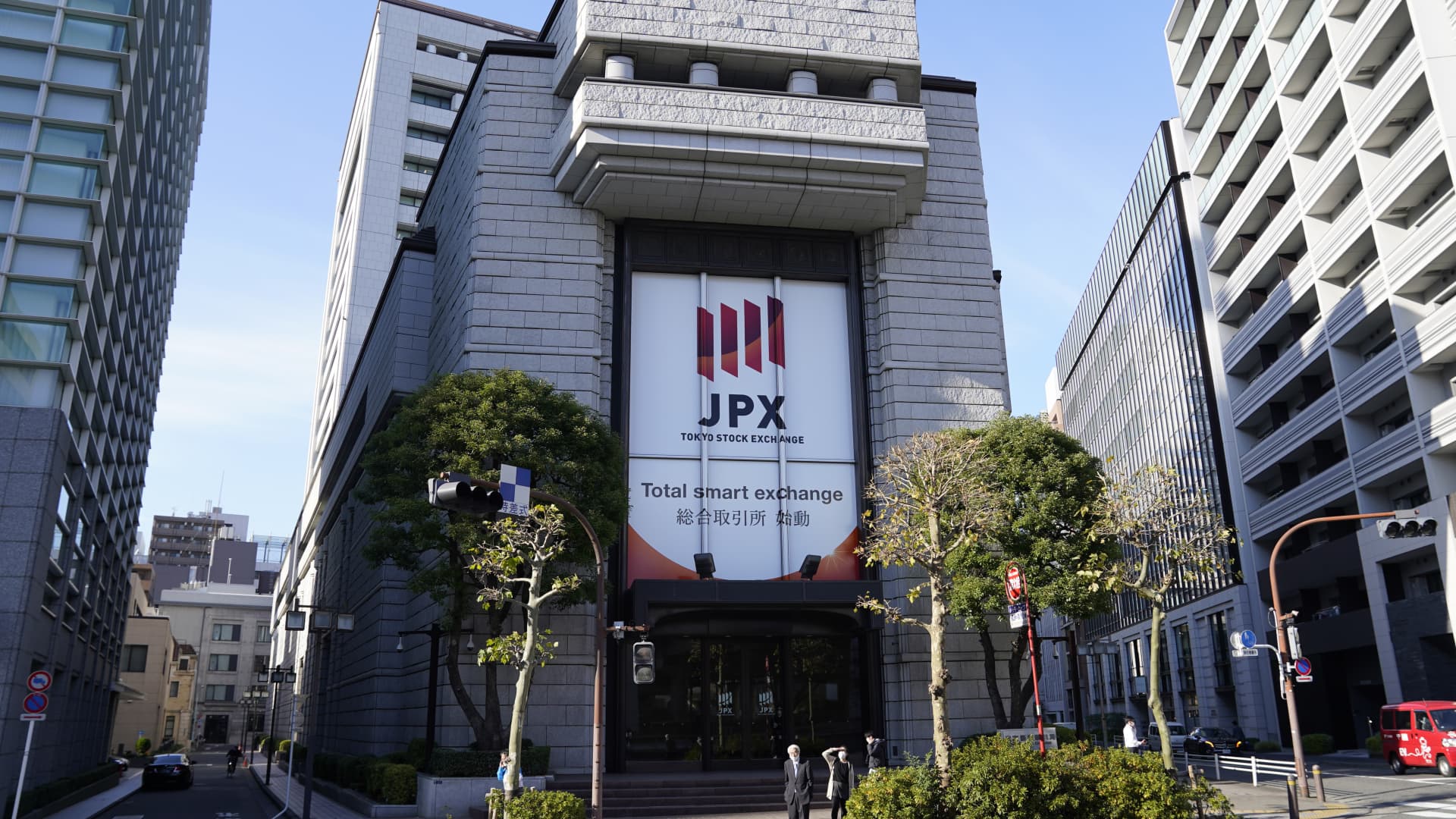Chinese tech stocks in Hong Kong slip as investors watch Covid situation in China

SINGAPORE — Shares in Asia-Pacific gave up early gains to mostly fall on Friday after a comeback on Wall Street as investors continued to digest the Fed’s plans to fight inflation.
Japan’s Nikkei 225 lost 0.25%, while the Topix slipped 0.31%.
Hong Kong’s Hang Seng index fell 0.12%, while the Hang Seng Tech index dropped 1.41%. Alibaba slid 2.28%, while JD.com shed 2.2%. Meituan lost 2.01%.
Near-term sentiment could stay curbed given a confluence of macro headwinds, Omicron spread, global liquidity uncertainty and US/China tension concerns.
Morgan Stanley
Mainland Chinese markets struggled for direction. The Shanghai composite was flat, while the Shenzhen component was fractionally lower.
Covid is in focus in China, with Shanghai reporting 20,398 new asymptomatic coronavirus cases —and 824 new symptomatic cases on April 7. The city is under a strict lockdown in a bid to stop the spread of the virus.
“Near-term sentiment could stay curbed given a confluence of macro headwinds, Omicron spread, global liquidity uncertainty and US/China tension concerns,” according to a Morgan Stanley note dated April 7.
The bank’s analysts also noted that domestic consumption is sluggish, and said the sporadic spread of the virus beyond Shanghai could lead to tightening measures in other places.
In South Korea, the Kospi declined 0.11% but the Kosdaq gained 0.26%.
Australia’s S&P/ASX 200 rose 0.6%.
Major stock indexes in the U.S. reversed losses to rise slightly at the close.
The Dow Jones Industrial Average gained 87.06 points, or 0.25%, to 34,583.57 after losing as much as 300 points earlier in the session. The S&P 500 was up 0.43% at 4,500.21, and the Nasdaq Composite inched up 0.06% to 13,897.30 following two straight days of losses.
Defensive stocks such as consumer staples and health care led the market comeback.
“The reaction to the Fed minutes early yesterday morning continued to dominate markets overnight,” Taylor Nugent, an economist at the National Australia Bank, wrote in a note.
Weekly jobless claims in the U.S. fell to 166,000 last week, the lowest number in more than 53 years.
The 10-year Treasury yield touched 2.667%, its highest level since March 2019. It was last at 2.6522%.
Elsewhere, the Reserve Bank of India will meet for the last day of its monetary policy meetings. Economists predict that interest rates will only rise in August, according to a Reuters poll.
